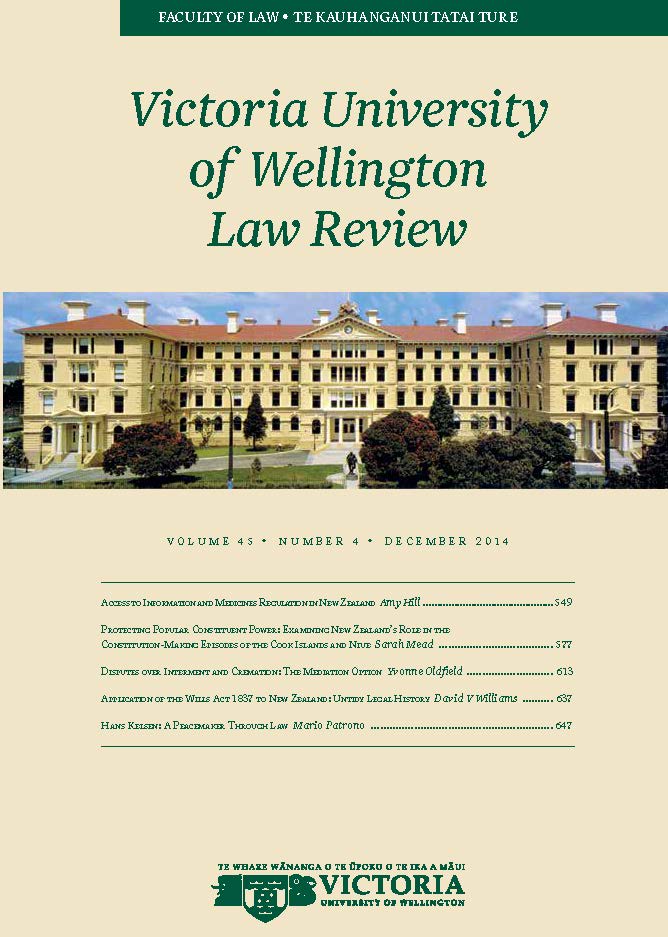Protecting Popular Constituent Power: Examining New Zealand's Role in the Constitution-Making Episodes of the Cook Islands and Niue
DOI:
https://doi.org/10.26686/vuwlr.v45i4.4943Abstract
This article assesses the democratic legitimacy of the constitution-making processes that brought into being the Constitutions of the Cook Islands and Niue. New Zealand's role in the decolonisation of its former colonies has generally been seen as quite benign. New Zealand's status as an external actor, however, raises questions regarding the effect its influence had on the democratic legitimacy of the respective constitution-making processes.
Constituent power theory demands that a constitution is the product of the popular political will; an act of self-determination undertaken by the people, for the people. This article argues that the existence of external influence in the constitution-making process is not necessarily at odds with this. In so far as external actors do not displace the people's constituent power but rather enhance it, there is no reason to exclude such influence; there may even be reason to encourage it.
By drawing on New Zealand's experience in decolonisation, this article ultimately advances a two-stage model for constitution-making in the context of small, dependent non-self-governing island states. As ongoing political ties with an external state are often sought, the aim of the model is to provide an avenue for that external state to participate in or contribute to the constitution-making process while maintaining the process's democratic legitimacy.
Downloads
Downloads
Published
How to Cite
Issue
Section
License
Authors retain copyright in their work published in the Victoria University of Wellington Law Review.


